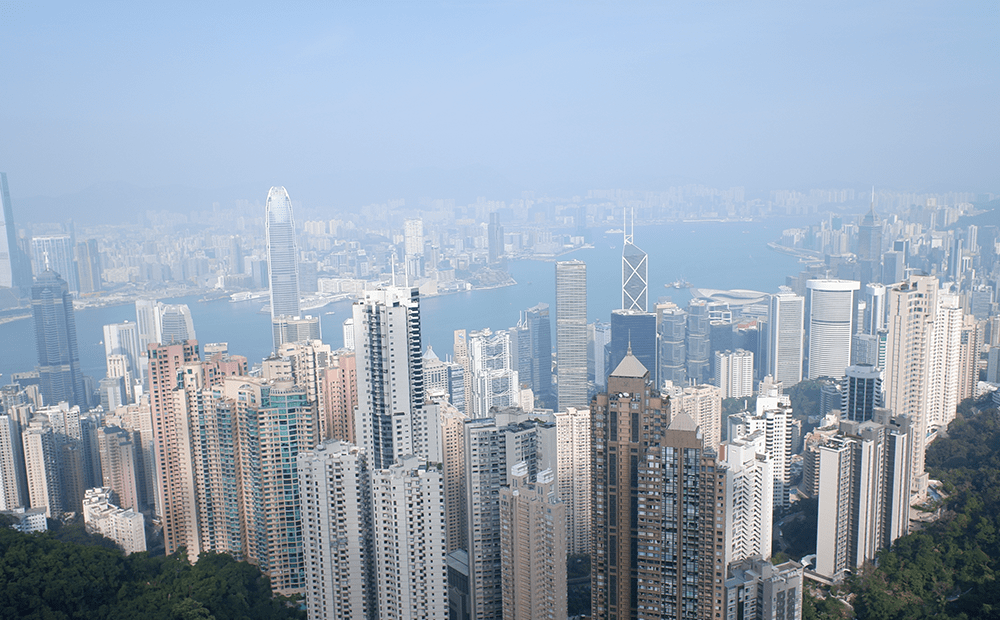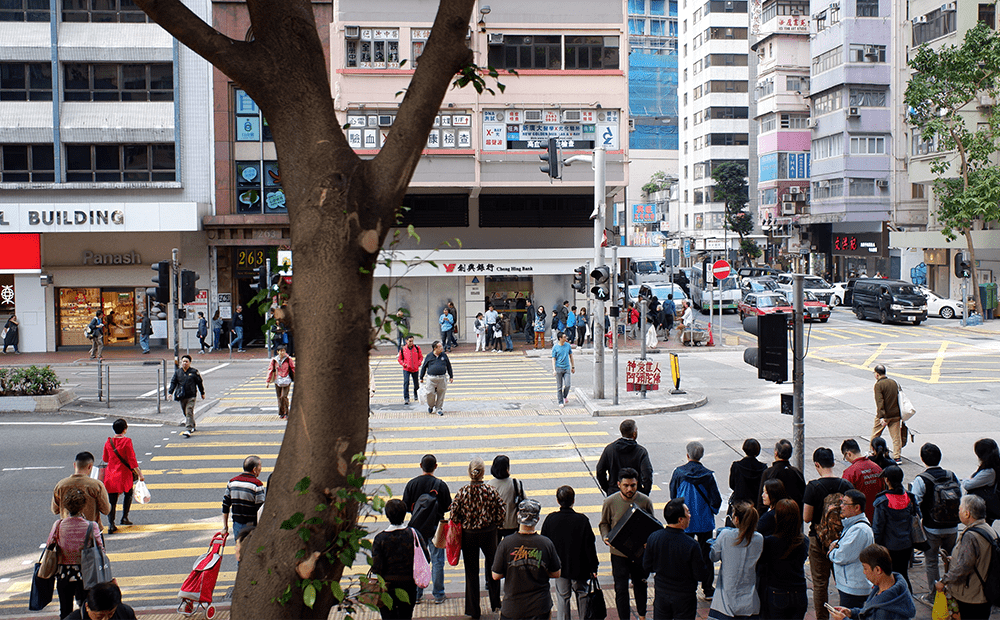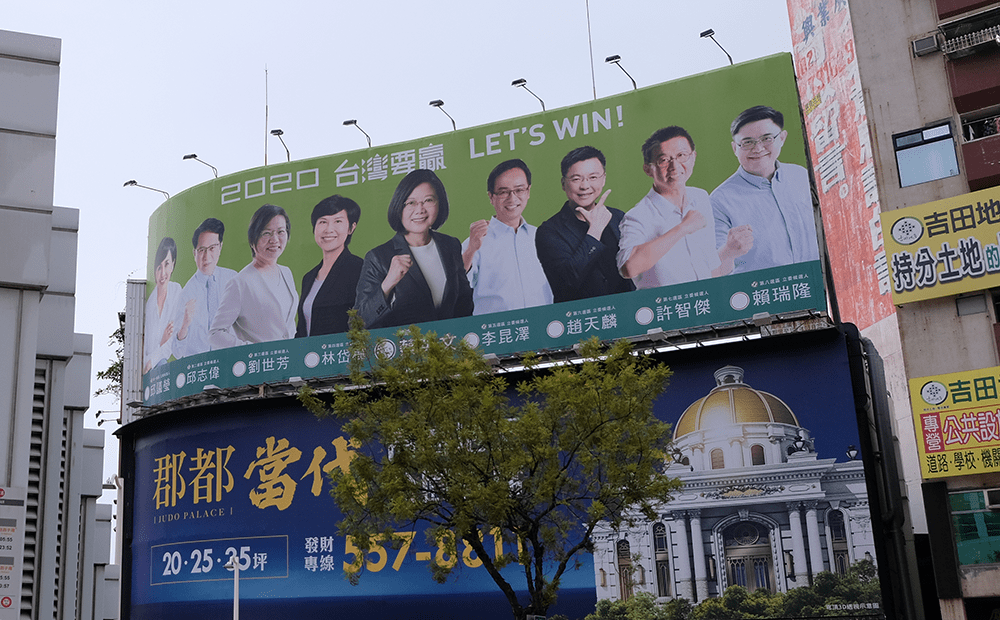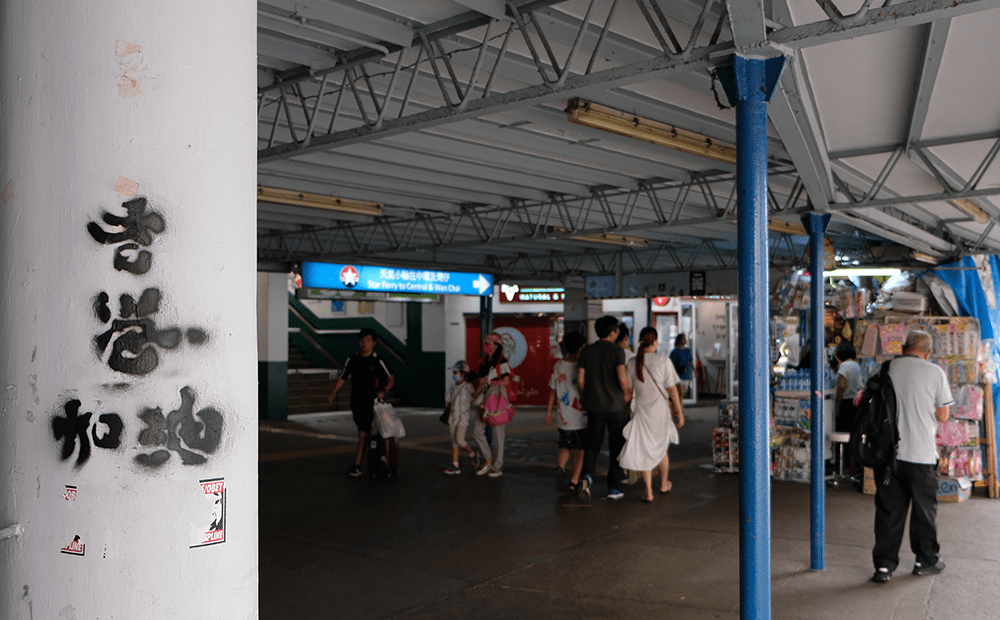After the election, a wave of unrest rises again and again

The last article was written on the day of the Hong Kong District Council election. Time flies by, and 2020 will soon enter the year. During this period, Taiwan has completed another direct presidential election. Now the Chinese community is busy preparing for the Lunar New Year. Unfortunately, the people of China and Hong Kong cannot welcome it happily. Golden Rat, because everyone was frightened by the new pneumonia in Wuhan and was at a loss.
The Chinese society in 2020 has already started with a dark atmosphere, the country's fortunes are not smooth, and fortunes and misfortunes are unpredictable. How can Hong Kong, where lips and teeth depend on each other, be alone?

After Hong Kong District Election
On the polling day of the district election, I analyzed my views on the election. I didn’t expect so many responses. The messages have different opinions. Although I couldn’t respond one by one, it allowed me to see more levels of thinking. A channel for mutual understanding.
I am a pessimistic person who thinks about big things, so before the election results, I never expected that the democratic candidates who fought against the election machine of the royalist camp would eventually win nearly 90% of the district council seats. The "Little Miracle Day" in the past few months has been a little sweet in the rare bitterness. Fortunately, I am inexperienced, making random guesses and completely inaccurate.
However, the District Council is only a regional advisory organization without statutory power. The victory of the democratic camp is still meaningful, but it still cannot shake the government and the powerful. Be vigilant that they should be careful in their words and deeds, let go of their arrogance, and understand their own position. The voices and grievances of different citizens. Because they also feel that they have a large group of supporters, at least more than 40% of the voters voted for the establishment camp, and they are backed by the more powerful Beijing government.
Sure enough, after the election, the government and the royalist camp did not seem to show any goodwill, and they did not think about compromise and communication, and their methods and positions were still tough:
- Those district councillors who defended the government were defeated, but they were comforted by the chief executive and even assigned to public office. On the contrary, the Government did not adopt a positive and friendly attitude to communicate with the new members;
- The demonstrations and protests in December and January continued, and the clashes between the police and the people continued, but it was still unable to prevent the excessive use of violence and indiscriminate arrests by the police;
- Officials continue to live in parallel time and space. Even if they choose to live broadcast on Facebook and the number of people online is low, they have not actively responded to the dissatisfaction and demands of citizens;
- During the protests around Christmas and New Year's Day, the police still fired tear gas in Tsim Sha Tsui, Mong Kok and other places, and citizens and tourists were still unable to enjoy the festive season;
- The police still issued "Notices of No Objection" for some parades and rallies, but on the day of the event, various strange reasons were found, and they suddenly asked the organizers to immediately stop the parade or rally, and to evacuate a large number of people who participated in a short period of time. The organizer and participants did not cooperate in carrying out what they considered a "reasonable arrest."
The organizers of the New Year's Day parade on January 1 said that the number of people in the parade exceeded 1.03 million, showing that many Hong Kong citizens are still dissatisfied with the response of the SAR government in the past six months, as well as the indiscriminate arrest and excessive use of violence by the police. This social movement is no longer a single event. The length of time has been changed into flesh and blood, and it has turned into a spirit and fighting spirit of long-term struggle, which will teach Hong Kong people unforgettable.
The market seems to be slowly returning to calm, but there is no real reconciliation, and the policy has not been properly adjusted. The calm is only temporary, the city is still restless, and the next round of outbreaks may be even more devastating.

After Taiwan's presidential election
It is really difficult for me, a small citizen, to understand the thinking of a big political figure. Why would a chief executive choose to rush to launch a "Fugitive Offenders Bill Amendment Bill" half a year before Taiwan's presidential election? As a result, a series of "anti-extradition campaigns" have affected the pattern of Taiwan's presidential election. It is unprecedented in history. It is rare for people in Hong Kong and Taiwan to care so much about the elections in the two places. "Today's Hong Kong, Tomorrow's Taiwan" has become the golden sentence of Hong Kong and Taiwan in 2019.
In the 15th presidential election held in Taiwan (Republic of China) on January 11, 2020, the final turnout rate was as high as 70%. A total of 8.1 million people in Taiwan chose to vote for Tsai Ing-wen, and the vote rate was 57%. It is also an open president in Taiwan's history. The record for the highest number of votes in direct elections.
At the beginning of 2019, most people still "hate the DPP", and the chances of the Kuomintang returning to power have increased greatly. Who would have expected the "anti-extradition" wave that broke out in the middle of the year to roll up a super political tsunami, forcing people not to govern. Few Taiwanese people use their votes to speak out and say no to China.
A year ago, on the occasion of the 40th anniversary of the publication of the "Message to Compatriots in Taiwan", Chinese President Xi Jinping once again shouted to the compatriots in Taiwan for peaceful reunification. One of the paragraphs clearly stated:
Explore the "two systems" plan for Taiwan and enrich the practice of peaceful reunification. "Peaceful reunification and one country, two systems" is the best way to achieve national reunification. It embodies the Chinese wisdom of inclusiveness and tolerance. It not only fully considers the reality of Taiwan, but also benefits Taiwan's long-term stability after reunification.
Obviously, China's orientation is to "unify Taiwan" with the "one country, two systems" approach; however, the situation in Hong Kong in the past six months has been deteriorating, and human rights and freedoms have been violated. In fact, a high degree of autonomy depends on the Beijing government. , completely debunked the "one country, two systems" model defined by the CCP government as a lie, completely frightening the Taiwanese. In the past 22 years, under the operation of "One Country, Two Systems", Hong Kong seems to have enjoyed all the glory and wealth. In fact, it has become a canary in a cage waiting to be executed.
The shortcomings of "one country, two systems" dragged down the more pro-China Kuomintang that adhered to the "1992 Consensus" and lost the election, and even fell into the crisis of destroying the party. Han Guoyu, who represented the Kuomintang and participated in the presidency, was in high spirits when he took office as the mayor of Kaohsiung a year ago. During his visit to Hong Kong in March, he also went to the Liaison Office to meet with Wang Zhimin. Perhaps China's national fortunes are really a bit stagnant. It seems that the new year is not going well if you are a little closer to the CCP regime; Wang Zhimin, director of the Liaison Office of the Central People's Government, was hurriedly sacked on January 6, 2020, and Han Guoyu could not be crowned the president. Moreover, he has a clear image of a runaway mayor. When he returns to Kaohsiung, he has to face the crisis of being removed from office.
In this election battle in Taiwan, what President Xiaoying is most grateful for must be the "mother of stir-frying" Yue'e's divine assistance, and Xi Jinping, who has always wanted to control the overall situation.

Wuhan pneumonia outbreak
Seventeen years ago, the Hong Kong government tried to legislate 23 articles, which caused huge controversy in the city. Then, SARS broke out in Guangdong Province, China. Last year, the Hong Kong government revised the extradition law, causing large-scale social conflicts, from early summer to winter. There is no sign of stopping, and one wave of unresolved waves has arisen. In January 2020, the outbreak of a new type of pneumonia epidemic in Wuhan, China was immediately reported.
History is always surprisingly similar. The rise and fall of great powers always have some laws and omens, and they are also inseparable from some natural and man-made disasters.
The SARS epidemic in 2003 is still fresh in the memory of many Hong Kong people. Due to the government's slow handling, underestimated the destructiveness and contagious power of the epidemic, the lack of public awareness of disease prevention, and the Chinese authorities' attempts to conceal it at first, it resulted in a large-scale outbreak in Hong Kong, in which 1,755 people were infected and 299 died. Six of the medical staff died in the line of duty. Back then, I was a freshman exam candidate. Wearing a mask to prepare for the first public exam is simply the most unforgettable memory of my life!
Coming to 2020, the achievements of Hong Kong's economic progress for more than a decade have been exchanged for a medical system that continues to be on the verge of collapse. The public is worried that the Chinese authorities are once again concealing the epidemic. As soon as they received the news of the complete closure of Wuhan, it was estimated that the severity of the matter was beyond the official control, and the panic expanded infinitely.
On the other hand, the response of senior officials in Hong Kong is slower than half a beat. There are no screening measures at high-speed rail stations and major border control points; the basic common sense of wearing masks to prevent the spread of germs does not remind citizens to do their best. The Department of Health Director Chen Hanyi said at today's (23rd) press conference:
Unless other people have symptoms, generally speaking, in ordinary social situations, they do not need to wear masks.
Anyone with a little brains knows that this group of officials is nervous about their own positions. Political correctness overrides professional judgment, violates normal logic and knowledge judgment, and would rather sacrifice the health of 7 million ordinary citizens than dare to act rashly to stimulate the will of those above them.
The epidemic is irrespective of political opinions. A slight error will cost tens of millions of lives. How can you bear it? Our head of the SAR said that he was "good to fight". After more than ten years, the whole city was forced to fight against the ruthless germs again. Where is she now? It turned out that she was still participating in the "high-level" World Economic Forum in Switzerland, focusing on continuing to enjoy her "lobbying work".
What is the fate of Hong Kong and China in 2020? With a group of officials with such wisdom, judgment and executive power, the people of Hong Kong should be more pragmatic and seek more happiness for themselves!
Like my work? Don't forget to support and clap, let me know that you are with me on the road of creation. Keep this enthusiasm together!

- Author
- More